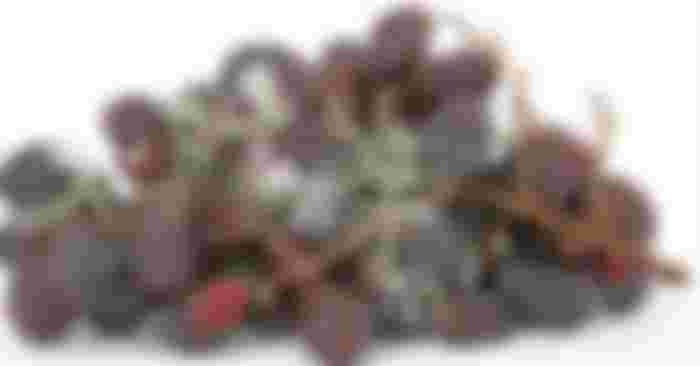
Do you know how to recognize the symptoms of food poisoning? Learn all about it and how to most easily overcome the consequences and prevent the occurrence of this problem.
Food poisoning can make you enjoy nature and grilling. In the most literal sense, this is a problem that occurs much more often during the summer, although it is possible that you will be poisoned by food during the winter as well. The reason for this lies primarily in the temperature, which is significantly higher during the summer than during the winter. As it pleases us, it pleases bacteria and viruses and affects their growth and development. And even when you are in nature, there are no conditions for washing hands and food like at home - it is a paradise for bacteria and ideal conditions for their multiplication.
Why does food poisoning occur?
In some cases, this is due to certain toxic substances found in some foods. This is for example the case when you eat a poisonous mushroom. In most cases, the cause is its improper use or storage of food in conditions that favor the development of bacteria.

Bacteria in food
Food can be infected during procurement, picking, preparation, transport, storage. One of the very common causes is the transfer of bacteria from one surface to another, in this case, food. This happens, for example, when you cut meat or other food on a dirty cutting board when you prepare it with dirty hands or using insufficiently clean utensils.
Foodborne infections most often occur when we eat fresh foods, which are immediately ready for use, such as fresh fruits and vegetables. Food that is cooked is less dangerous because the temperature kills pathogenic germs - provided that you eat it with clean utensils, clean hands, and immediately after preparation.
The most common causes of food poisoning are:
Bacteria - Salmonella, Escherichia coli, Listeria, and Clostridium are among the best known and most widespread here.
Viruses - this group includes all those so-called stomach viruses, among which are norovirus or rotavirus.
Cooking kills bacteria and viruses. But when it is summer and when there is an abundance of fresh fruits and vegetables, fresh salads and plenty of fruits begin to dominate our menu, food poisoning has a greater potential.
Take watermelon for example. They are a great summer refreshment and can help you lose weight in many ways.
One is one that means consuming them as much as possible such as a watermelon diet.
The second is the one that will contribute to you becoming infected with some bacteria and getting sick and thus reducing your appetite.
Although we eat the inside of the watermelon, bacteria and impurities are found on the outside. Therefore, before cutting, it is desirable to wash its bark well, and only then cut it. With a clean knife, of course. What many of us do is ask the seller to cut a piece of watermelon for us to see if it is ripe. Here is a paradise for bacteria! The liquid from the watermelon remains on the knife, the temperature favors the development of bacteria, and it is unlikely that the street seller of watermelon has the conditions to wash the knife after each use.
Some foods are more susceptible to bacterial contamination, and this group includes the following foods:
raw and insufficiently heat-treated meat
raw eggs and fish
unpasteurized milk
Bacteria need to have certain conditions for development. High humidity and temperature up to 63 C are the most favorable.
All foods that meet these requirements and are not stored in the refrigerator can lead to food poisoning. This includes ketchup, mayonnaise, various dressings, salads, and afternoon lunch left at room temperature for several hours.
You can find the sources of the infection at every step. It is enough to be careless.
What are the symptoms of food poisoning?
Perhaps the symptoms of this disease will not immediately ruin your picnic, except that food that is not of the appropriate quality can have a bad smell and taste and reduce your enjoyment of it. It mostly depends on how long you have been on a picnic after consuming bacteriologically defective food.
The first symptoms will appear after a few hours, but they can also appear much later - after a few days or weeks.
You can expect the following discomfort:
Nausea and vomiting
Strait
Stomach pain
Temperature
Lack of appetite
Fatigue
Headache
The symptoms of food poisoning can last for several days and will completely exhaust you. It is usually 3-5 days, but it also depends on your immune system.
Can food poisoning be dangerous?
Maybe in some cases.
What happens most often is dehydration. Then when bacteria in food spice up your picnic, chances are high that you will lose a lot of fluid from your body due to frequent vomiting and diarrhea. That is why it is very important to make up for lost fluid and drink enough water. In addition to fluids, in this way, the body loses both salts and minerals. It seems simple to drink plenty of fluids and make up for the salt by consuming lukewarm soup. But when you have no appetite and when you are weak, water can also cause the urge to vomit, which makes it very easy for you to find yourself in a vicious circle of dehydration.
Escherichia coli is one of the bacteria responsible for food poisoning. It can also cause chaos in the body. It can damage the layer of blood vessels in the kidneys, which can lead to disruption of their work and even to the failure of their function.
Salmonella is a type of bacterium that is the most common cause of this problem, especially in the summer months. It can usually be found in fresh eggs, milk, and fresh meat. While certain pathogenic microorganisms will change the smell and appearance of food, salmonella will easily go unnoticed because it does not leave such traces. Then when it reaches your body, the presence of salmonella will be made clear to you. The symptoms of salmonella poisoning are the same as for poisoning by other bacteria and can occur between 12-72 hours.
Food poisoning in healthy people is not overly dangerous, but in people who have weak immunity, it can have dangerous consequences and even lead to a fatal outcome.
How is the treatment carried out?
Bacteria that cause toxic changes in food to have complicated names and diagnoses such as "Salmonella infection" can be life-threatening and set off a panic alarm in your head. Of course, this is not completely harmless, but there is no room for too much worry. It is uncomfortable, but in most cases, you are not in mortal danger.
The treatment of food poisoning, including the treatment of salmonella, is usually carried out at home and, if there are no additional complications, it passes in a few days with the discomfort suffered.
In order to successfully cope with the symptoms, it is necessary to drink enough fluids during the treatment. Water, tea, soup come into consideration, and sports drinks that are rich in electrolytes are extremely good. In this way, you will replenish the lost minerals, the body will slowly return to normal.
Diarrhea diet
If you have diarrhea and your appetite is not the best, you will need a special diet against diarrhea. To some extent, the organism itself will dictate the pace and way of eating here. Then, when your appetite is disturbed, fatty foods will probably not please you. In the treatment of diarrhea, the most important thing is to drink enough fluids and to introduce the food gradually.
The anti-diarrhea diet briefly includes the following rules:
Teas are better if they are also useful. So instead of fruit tea with strawberry aroma, take tea that will reduce stomach cramps (chamomile, mint, cumin)
Introduce liquid foods. The best are soups that have a lot of electrolytes and soups. It is an excellent choice and is water made of water, the specific mucous structure of which can help restore the work of the intestines.
Avoid fresh fruits and vegetables and foods rich in fiber, which will only accelerate the continuation of diarrhea. However, not all fruits are forbidden. Banana is rich in potassium and in this case, it may be the right choice.
Gradually introduce solid foods, preferably what you like best at that time because you don’t need to cause even more nausea. So, listen to your body. It can be biscuits, crackers, dry snacks, and light meals such as cooked rice, potatoes, or carrots. Against diarrhea is an excellent yogurt with probiotic cultures that can support the work of the intestines.
Avoid dried meat products and strong spices.
When to see a doctor?
Food poisoning is exhausting and will literally drain you like a rag, but it usually passes without major health consequences. However, if you experience the following symptoms you should see a doctor:
Bloody vomiting or bloody stools
Inability to hydrate well due to frequent vomiting or diarrhea, dry mouth, irregular urination
Diarrhea lasting more than 3 days
Severe abdominal pain
High temperature - over 38.5 C
Unconsciousness and weakness.
Blurred vision and tingling sensation in the arms or legs
All of these are signs that home treatment is not enough for you and that you need professional medical help. Your doctor will then prescribe an infusion and perform the necessary tests and possibly prescribe antibiotics.
10 tips to prevent food poisoning
In order for going out with the company in nature without such consequences, only a few precautions and precautions are needed. Here are 10 tips on how to prevent food poisoning.
1.Properly pack groceries in clean boxes. Raw food should be separated from that to be prepared.
2.Do does not place prepared food in a plate or container containing fresh, unprepared food. This increases your chances of spreading the infection
3.Bring plenty of water to wash your hands and prepare a meal with clean hands. Paper towels and wet wipes are not out of the question either.
4. Don't be impatient. We know that he is hungry in nature and that grilled meat attracts with its smell. However, it is very important that it is well heat-treated in order to destroy any bacteria
5.Do does not thaw frozen food abruptly. It is best to do this gradually. Take it out of the freezer the day before and put it in the fridge to melt gradually.
6.Do does not eat raw eggs and unpasteurized milk. Always heat treat them.
7.Heat the leftover food well - to the boiling point.
8.Wash fruits and vegetables that you will eat raw thoroughly
9.Throw away suspicious food. If the smell and appearance are not attractive or common for this type of food, it can be a sign that the activity of certain bacteria takes place on them. In that case, it is better to throw away food than to suffer the consequences.
10.Do does not use expired food. Although the date on the packaging is only a short deadline, which can be longer the other day, it is best not to take risks with such foods.

Food poisoning sounds like something fatal, but most often it is not. However, during the summer months, it is not uncommon and that is why you need to know how to prevent it and how to treat it. It is a time when the sun entices us to spend time outside and hang out, and when we will gladly take on the job of preparing barbecues or ordinary picnic sandwiches.
Barbecue and food serving
Barbecue
Then, when you prepare food yourself, it is enough to take all preventive measures, store food properly, watch what you buy, look at deadlines, evaluate the smell and taste and take care of hygiene.
Feasible, isn't it?
The problem can be when you eat in a restaurant in the summer months or buy fast food whose toppings in the form of salads and dressings stand at the outside temperature or in any situation when someone else is preparing the meal you are eating. Take care of that even when you go swimming and bring sandwiches that spend a good part of the day at too high a temperature.
Food poisoning may not immediately diminish your enjoyment of the charms of summer, but the next few days can very easily be remembered by you for a bad experience.



Never been food poison before, But it's good to know how to protect myself, thank you, Sir